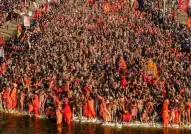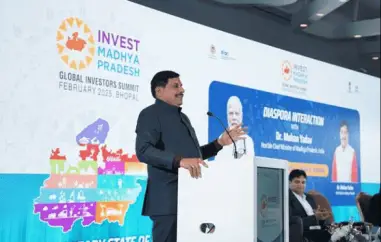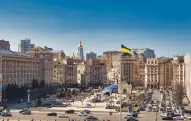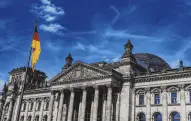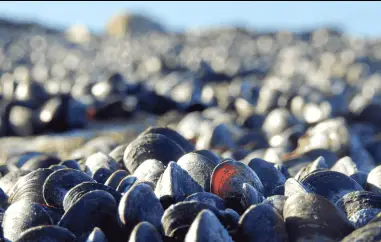Solution to the Stalemate in Kashmir
The Kashmir region in India is perpetually in the news because of the violence and anti-Indian agitation of the local residents. The genesis of this confrontation goes back a long way.
British colonial rule in the Indian sub-continent ended in 1947. India and Pakistan, two independent nations were created on religious lines. All erstwhile provinces were given the option of either merging with India or Pakistan. The aforesaid territories were ruled by different kings till the advent of the British in India.
The king of Kashmir was a Hindu, Hari Singh but the majority of Kashmir residents were Muslims. Hari Singh didn't make any decision in this regard, however, meanwhile armed groups from the Pakistani side attacked Kashmir and tried to annex it into Pakistan.
Hari Singh appealed to India for help. Nehru, the Indian PM sent Indian forces to intervene on the condition that Kashmir would become a part of India. Hari Singh then signed for Kashmir to be a part of India. Nehru promised plebiscite to the people of Kashmir multiple times.
In a telegram to the PM of Pakistan, Nehru said, "Kashmir's accession to India was accepted by us at the request of the Maharaja's government and the most numerously representative popular organization in the state which is predominantly Muslim. Even then it was accepted on condition that as soon as law and order had been restored, the people of Kashmir would decide the question of accession. It is open to them to accede to either Dominion then" (Telegram No. 255, dated 31 October 1947).
Nehru should have conducted a plebiscite in Kashmir instead of just talking about it repeatedly in India and abroad.
India and Pakistan have fought three wars over Kashmir, 1947, 1965 and the Kargil war in 1999. India claims the entire state of Jammu and Kashmir and has approximately 43% of the region under its administrative control.
Pakistan calls this region 'Indian occupied Kashmir', while the Indian side refers to the part of Kashmir with Pakistan as 'Pakistan occupied Kashmir'.
Local Kashmiri politicians are the ones benefiting the most from the stalemate in Kashmir. They get heavy concessions from the central government of India besides huge amounts of cash and other assistance from Pakistan.
Kashmir has been receiving special economic packages and VIP status from successive Indian governments at the central level. Jammu & Kashmir received 10% of all central grants given to provinces in India from 2000-2016 despite having only 1% of the country's population.
The province has an absurd article 370 (Indians can buy land and settle anywhere in the country, except Kashmir) which has alienated an average Indian citizen completely from Kashmir.
This region has unfairly been pampered too much by the Indian political establishment still, if the locals are not happy staying with India there is no point holding on to them by force.
Violence doesn't solve any problem. A large number of Kashmiri residents as well as Indian army and security forces have lost their lives in the on-going Kashmir dispute. The situation is akin to a joint family, where various family members live under one roof with each other. If a few family members are constantly bickering and don't wish to stay together with the family, then the best option is to let the reluctant family members leave amicably rather than fighting and spoiling the household atmosphere.
A plebiscite should be held in Kashmir province, under the supervision of the United Nations, so that no party can complain about the transparency of the referendum. The plebiscite should have only two options; either stay with the Indian Union or merge with Pakistan.
There is no question of Kashmir's independence. Plebiscite as promised by Nehru has been pending since, 1947, so it should only consider the situation and options available to all former provinces at that time, which was either merge with India or Pakistan.
The result of the referendum should be final and binding to everyone; India, Pakistan and Kashmir.
There is no point in wasting huge amounts of Indian funds on continuing the failed policies of Nehru and the Congress party in Kashmir. Modi's party BJP won the 2014 national elections with an overwhelming majority. Modi should 'think out of the box' and opt for plebiscite in Kashmir.
This plebiscite will resolve the Kashmir issue once and for all besides eliminating pointless terminologies like Indian occupied Kashmir/Pakistan occupied Kashmir.
It would also lead to a cessation of hostilities between India and Pakistan, thereby bringing lasting peace and prosperity in the region.
Sources:
1. http://mrzine.monthlyreview.org/2010/roy291110.html
2. http://www.telegraph.co.uk/news/1399992/A-brief-history-of-the-Kashmir-conflict.html
3. http://www.thehindu.com/news/national/other-states/JampK-gets-10-of-Central-funds-with-only-1-of-population/article14506264.ece
4. http://www.india.com/news/india/pakistan-pledges-support-to-jammu-kashmirs-freedom-struggle-india-hits-back-1407988/





